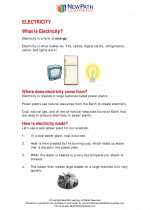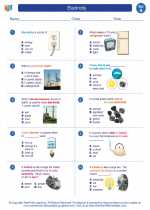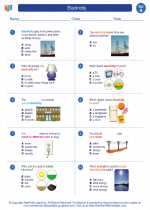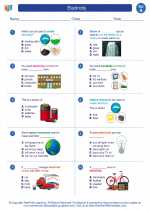Chronology
Chronology is the science of arranging events in their order of occurrence in time. It helps us understand the sequence of events and how they relate to each other. Understanding chronology is important in many different fields of study, including history, geology, and astronomy.
Key Concepts
- Events: In chronology, events are the occurrences or happenings that we want to arrange in order.
- Time: Time is the measurement of the sequence of events. It helps us understand when events happened in relation to each other.
- Order: Chronology helps us put events in the correct order, from the earliest to the latest.
Ways to Study Chronology
There are different methods for studying chronology, such as:
- Timeline: Creating a timeline is a visual way to represent the order of events. It helps us see the relationship between events and how they unfold over time.
- Relative Dating: In geology and archaeology, relative dating techniques are used to order events without determining their specific age. This can include stratigraphy, which studies the layers of rock or soil.
- Absolute Dating: In contrast to relative dating, absolute dating methods provide specific dates for events using techniques such as carbon dating or tree-ring dating.
Study Guide
If you're studying chronology, here are some key points to remember:
- Understand the concept of events and their order in time.
- Practice creating timelines to represent the sequence of events.
- Learn about different dating techniques used in chronology, such as relative and absolute dating.
By understanding chronology, we can gain a better understanding of historical events, the formation of the Earth, and the evolution of the universe.
[Chronology] Related Worksheets and Study Guides:
.◂Science Worksheets and Study Guides First Grade. Electricity
Study Guide Electricity
Electricity  Worksheet/Answer key
Worksheet/Answer key Electricity
Electricity  Worksheet/Answer key
Worksheet/Answer key Electricity
Electricity  Worksheet/Answer key
Worksheet/Answer key Electricity
Electricity 

 Worksheet/Answer key
Worksheet/Answer key
 Worksheet/Answer key
Worksheet/Answer key
 Worksheet/Answer key
Worksheet/Answer key

The resources above cover the following skills:
PHYSICAL SCIENCE (NGSS)
Waves and their Applications in Technologies for Information Transfer
Students who demonstrate understanding can:
Plan and conduct investigations to provide evidence that vibrating materials can make sound and that sound can make materials vibrate.
Use tools and materials to design and build a device that uses light or sound to solve the problem of communicating over a distance.